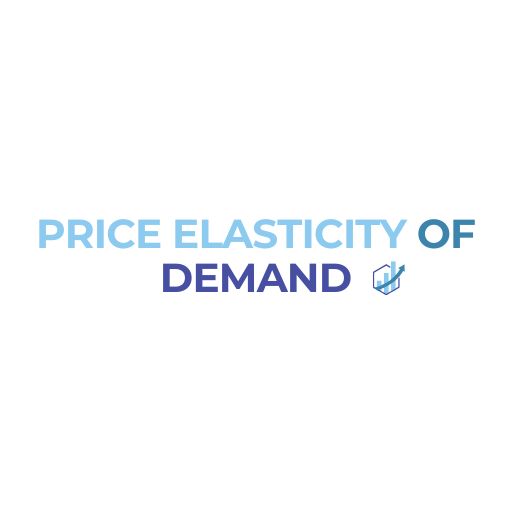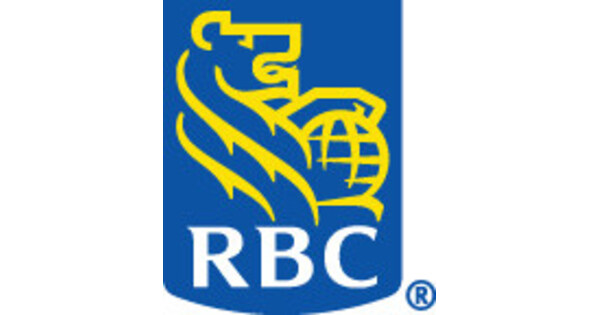One key aspect of investing that is sometimes overlooked is the way different securities are bought and sold. With the rise of digital platforms, reductions in commission fees, and an evolving regulatory framework, investors now have more options than ever for buying and selling stocks, bonds, and mutual funds. Whether you’re a seasoned investor or just starting out, understanding the different trading venues available—and their respective advantages and drawbacks—is crucial for making informed investment decisions..
In general, you can buy and sell securities via four primary channels:
- Brokerages
- Directly from the company that issues them
- Banks
- Peer-to-peer from private investors
Key Takeaways
- One of the most common and easiest ways to buy and sell stocks, mutual funds, and bonds is through a brokerage firm.
- Buying or selling securities directly with the issuing company will generally be more difficult than using a broker.
- Although most banks don’t sell stocks, they do offer mutual funds and bonds.
- There are many ways to buy and sell securities; each comes with its own advantages, challenges, and risks.
Brokerage Houses
One of the easiest and most common ways to buy and sell stocks, mutual funds, and bonds is through a brokerage house. Brokerage firms typically require you to open an account with them and deposit a certain amount of money as a show of good faith.
Brokerages are popular because they (rather than you) do much of the behind-the-scenes work, such as completing the necessary paperwork and ensuring timely dividend payments. Choosing the right broker is an important first step for new investors.
The Main Types of Investment Securities
- Stocks: potential for capital gains and dividends
- Exchange-traded funds (ETFs): low-cost diversification and sector focus
- Real estate investment trusts (REITs): indirect access to real estate investments
- Mutual funds: professional portfolio management
- Corporate bonds: often less volatile than stocks; provide regular interest payments
- Treasury bonds: issued by U.S. government; often viewed as risk-free
- Municipal bonds: issued by local or state governments; tax-advantaged for many investors
- Money market funds: cash equivalent; often better interest rates than bank deposits on cash
Full-Service Brokers
Historically, the primary way for investors to enter into the securities market was to contact a full-service broker and have them purchase different stocks and bonds on their behalf. Because of the personal relationship that often develops between investor and broker, full-service brokers typically call their clients and provide recommendations for buying or selling particular securities.
Pros & Cons of Full-Service Brokers
-
Professional advice and portfolio management
-
Personal relationship with a dedicated broker
-
Access to detailed research and analyst reports
-
Regular portfolio reviews and proactive recommendations
-
High commissions, service charges, and account management fees
-
May have high minimum investment requirements
-
Potential conflict of interest in recommendations
Discount Brokerages
Discount brokerages have become increasingly popular with investors thanks to ever-falling commission fees. These brokerages, like large supermarkets, offer investors a huge selection at a low cost. However, investors have to do most of the work themselves. At almost all discount brokerages, you can buy stocks, bonds, or mutual funds either by calling one of the investment representatives—who will collect a commission—or by completing the transaction online yourself.
Either way, you’ll need to enter an order ticket, which states the type of security you want to purchase (bond, stock, or mutual fund), the price you want to pay for it, the quantity you would like to buy, and the duration for which you would like to leave the order active (e.g., one day to one month). Upon proper completion of the order, it is sent to the exchange, where the stock, bond, or mutual fund is bought or sold at whatever terms are on the order ticket.
Pros & Cons of Discount Brokers
-
Significantly lower commissions & fees (often zero-commission trading in stocks & ETFs)
-
Complete control over investment decisions
-
Access to a wide range of investment products
-
Convenient online trading platforms
-
Limited professional guidance
-
Responsible for own investment research
-
Technical knowledge may be required for certain trading platforms
-
Potential for impulsive trading decisions
Robo-advisors
Robo-advisors represent a recent innovation using automation and algorithms to provide personalized investment management at a lower cost than traditional advisors. These apps or web-based platforms typically start by having investors complete a questionnaire to assess their risk tolerance, financial goals, and time horizon.
Based on these inputs, the robo-advisor creates and manages a diversified portfolio of low-cost ETFs or index funds. Many companies offering robo-advisors now offer a “hybrid” model where investors can also access human financial advisors for specific questions or periodic reviews.
Pros & Cons of Robo-Advisors
-
Lower fees & costs than traditional brokers or financial advisors
-
Very low account minimums
-
Set-it-and-forget-it automated approach
-
Regular portfolio monitoring and rebalancing
-
Emotional bias removed from investment decisions
-
Limited personalization and customization compared to other options (cannot choose individual securities)
-
Limited human relationship for emotional support during market volatility
-
Most appropriate only for long-term investors
Direct Stock Purchase Plan With Issuing Company
In the past, buying or selling shares directly from the issuing company was more of a hassle than going through a broker. But it offered advantages. By skipping the middleman, investors could buy shares with minimal or no transaction costs and avoid any requirements for a minimum investment.
These days many companies offer their direct stock purchase plans (DSPP) through transfer agents such as Computershare Trust Company and American Stock Transfer & Trust Company, two of the largest. You could argue that buying through a transfer agent means you aren’t actually buying directly from the issuer, and you would have a point. In any case, these transfer agents make it easier to buy shares online from the issuing company while offering many of the benefits previously available when buying directly from a company without the use of transfer agents.
First, you can still avoid brokerage commissions, though transfer agents such as Computershare will often require you to set up an account and pay a transaction cost when you buy or sell shares. The minimum investment size differs by company. Caterpillar Inc. (CAT), for example, requires a minimum investment of $250 for new shareholders. S&P Global Inc. (SPGI), on the other hand, requires a minimum investment of $500 for new shareholders.
Even with minimum investments, participating in a DSPP still enables investors to buy smaller batches of shares—in some cases, less than one share. For example, a $250 investment in Caterpillar will get you less than one share. So this option could make sense for people who want to start investing but don’t have much money to do it.
One thing to keep in mind: When you buy stocks or bonds directly from the issuer, even through a transfer agent, they will be held in certificates, either in registered or bearer form. If your purchase is in bearer form, the issuing entity does not keep any records of transactions, which means that you are responsible for the safekeeping of the security. If you lose a security in bearer form, there is no way to retrieve it; the person who finds it is the proud new owner of your stock.
You can also typically buy and sell mutual funds directly from the fund issuer by establishing an account with them online or through a branch office.
Pros & Cons of Direct Share Purchase
-
Often no transaction fee
-
No brokerage account needed
-
Ability to purchase small amounts of shares
-
Direct enrollment in dividend reinvestment plans (DRIPs)
-
Often no minimum investment
-
Can only purchase securities issued by that particular company
-
Longer processing times for transactions
-
Responsibility for safekeeping certificates
-
Can be a more complex process to sell securities
Banks
Although most banks don’t sell stocks, they do offer mutual funds and bonds. That said, their selection will be limited to funds offered by the bank itself or through its partners. On the plus side, you can simply walk into just about any corner bank and purchase mutual funds or bonds on the spot.
A bank representative should be able to tell you the different characteristics and minimum purchase amounts of the products available.
Pros & Cons of Banks
-
Convenient access through online portal or local branches
-
Integration with existing banking services
-
Often lower minimum investment requirements
-
Familiar and trusted institutions
-
Fast and often free funds transfers between accounts
-
May offer limited product selection (e.g., limited to banks’ own offerings)
-
Potential bias toward proprietary products
-
Typically higher fees than discount brokers
-
May lack sophisticated investment tools
Person-to-Person (P2P)
In theory, you can buy and sell securities peer-to-peer, meaning outside of an exchange. Suppose that a friend has a stock that you would like to buy, or a relative who needs the funds immediately would like to sell you a bond. It can be done, but beware of scams, such as false certificates.
With most stocks and bonds, the other party will have to sign the certificates over to you, the buyer. If you’d like to sell, you only have to sign the back of the certificates, which can then be sold to another party. In either scenario, after the security certificates are signed, they must then be sent back to the company to be re-registered under the name of the new owner.
Pros & Cons of P2P Trading
-
High risk of fraud or scams
-
Far less regulatory oversight
-
Difficulty verifying certificate authenticity
-
Relatively illiquid when trying to sell
Can You Send Physical Stock Certificates to Your Broker?
Yes, most brokers accept physical stock certificates, though the process requires careful handling. You’ll likely need to mail the certificates via registered mail or deliver them in person. Your broker will help you convert them to electronic form in your account. However, be aware that many brokers charge a fee for this service, and processing can take several weeks. Always get specific mailing instructions from your broker first, as improper handling could result in lost certificates.
Where Can You Buy Government Bonds?
In the United States, you can buy Treasury bonds directly from the government through TreasuryDirect.gov without using a broker or bank (although brokers and banks also often offer access to these markets). The TreasuryDirect platform allows you to purchase Treasury bills, notes, T-bonds, savings bonds, and TIPS (Treasury Inflation-Protected Securities). The process requires setting up a TreasuryDirect account, linking it to your bank account, and participating in Treasury auctions. While this method saves on broker fees, you won’t have access to the secondary market for trading bonds before maturity (although you can typically sell them back to TreasuryDirect).
What Happens to Your Investments if Your Broker Goes Out of Business?
Securities and cash held at legitimate brokerages are protected by the Securities Investor Protection Corporation (SIPC), which covers up to $500,000 in securities and $250,000 in cash per account type if a brokerage fails. Additionally, many brokerages carry excess insurance. However, SIPC doesn’t protect against market losses or bad investment decisions—only against broker failure.
How Do You Transfer Investments Between Different Types Of Institutions?
Most investments (such as stocks and bonds) can be transferred between institutions through the Automated Customer Account Transfer Service (ACATS). This system allows for the transfer of most securities from one trading account to another without selling. However, some investments, like certain mutual funds or proprietary products, may need to be sold first. The process typically takes three to 10 business days, and some institutions charge transfer fees (for incoming or outgoing transfers, or both).
How Can You Buy Stocks Without a Broker?
You can buy stocks even if you don’t have a brokerage account through several channels, including from your bank, directly from the issuing company, or via a private transaction with another individual.
The Bottom Line
There are many ways to buy and sell securities. Each comes with its own advantages, challenges, and risks. Whether you decide to deal with a full-service or discount broker, issuing company, bank, friend, or relative, make sure that you’ve done your homework and identified the best option for you.











Leave a Reply